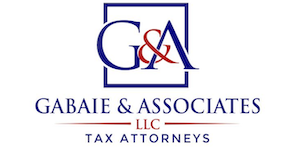For many business owners, starting a company is a lifelong dream. After all that hard work and sacrifice, it’s important to ensure that you have your business ducks in a row. According to the U.S. Bureau of Labor and Statistics, about 20% of small businesses will fail in the first year, and only about half will make it to five years. To increase your business’s chance of success, you’ll want to avoid errors that can trigger an IRS audit and possibly result in penalties, interest, and back tax assessments.
Tax Audit Triggers to Avoid
Some business tax errors are more likely to result in an audit from the IRS, including payroll tax errors, unpaid unemployment claims, and late payments to the IRS.
- Payroll Taxes
Some of the most common business tax errors that can result in an IRS audit involve payroll taxes. As an employer, you must withhold certain taxes from your employees’ paychecks and pay them to the state or federal government. Your business is responsible for paying taxes such as:
- Federal income tax
- Medicare tax
- Social security tax
- Federal unemployment tax
- State income tax
- State unemployment insurance tax
- Local or municipal income tax
- Unemployment Claims
If a former employee has unemployment claims, you may also be responsible for some unemployment tax payments to the state or federal government.
- Late Payments
If your business owes taxes of any kind, failing to pay them can result in further investigation by the IRS. On top of interest, penalties, and late tax payments, failing to pay taxes can only compound the problem.
Personal Liability for Payroll Taxes
Section 6672(a) of the Federal Insurance Contributions Act (FICA) states that “any person required to collect, truthfully account for, and pay over any tax imposed” by the IRS, can “in addition to other penalties provided by law, be liable to a penalty equal to the total amount” of the tax not paid or collected. In other words, the IRS can pierce the corporate veil and hold business owners or payroll administrators personally liable for these payroll taxes, as well as fines and interest. If the failure to pay the taxes to the IRS is “willful,” the IRS can go after any person responsible for the collection and payment of payroll taxes. If a business collects payroll taxes but fails to pay them to the IRS, it can also result in an IRS audit of the personal taxes of business owners or corporate officers.
Hire an Experienced Tax Attorney
Understanding how and what taxes your business must pay can be a complicated endeavor. As a result, it’s important to ensure that you have guidance and advice from an experienced tax attorney. Whether you’re facing an audit of your business or personal taxes, the skilled tax attorneys at Gabaie & Associates, LLC can help. We have years of experience guiding clients and solving complicated tax problems before they become critical. Contact Gabaie & Associates, LLC online for a free consultation or give us a call at 410-358-1300.

